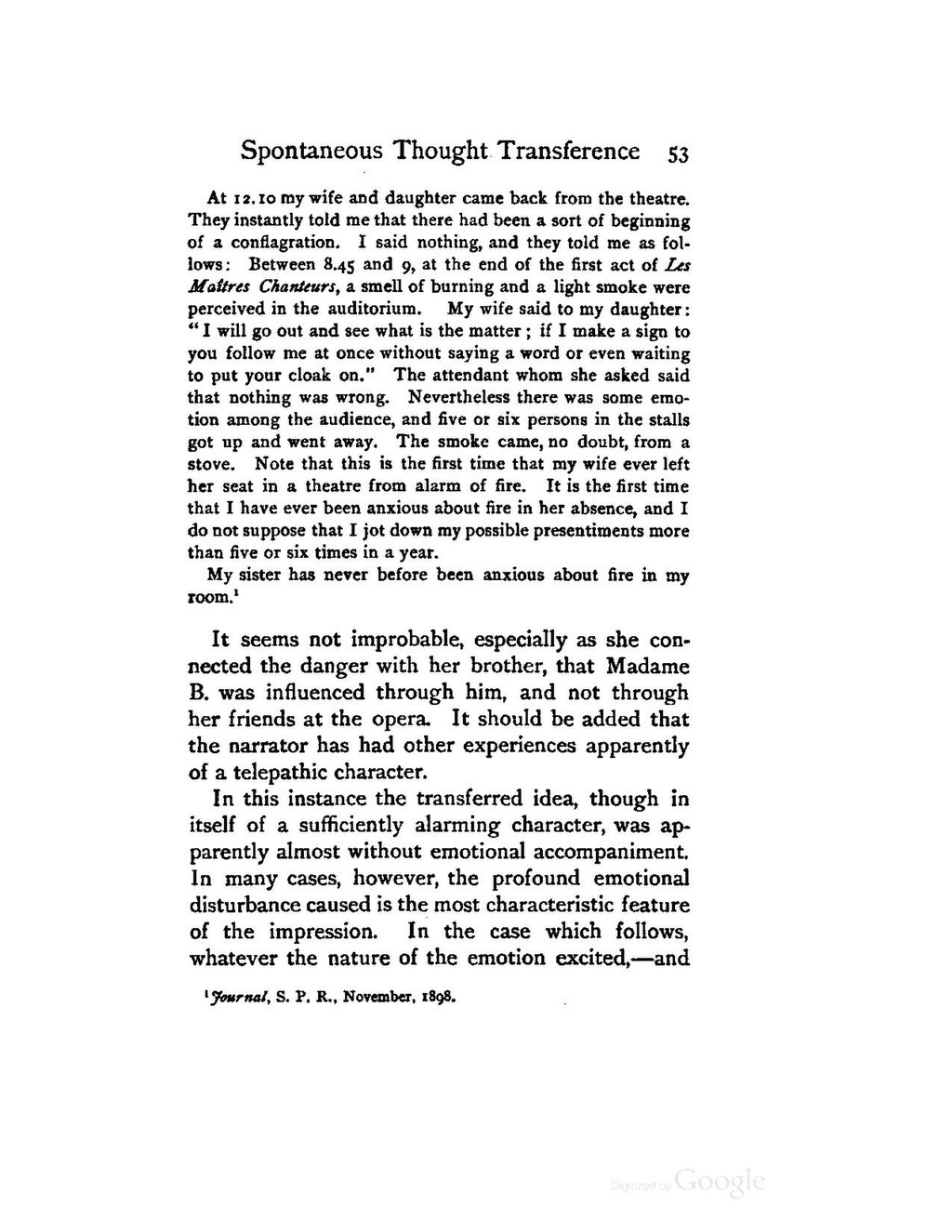At 12.10 my wife and daughter came back from the theatre. They instantly told me that there had been a sort of beginning of a conflagration. I said nothing, and they told me as follows: Between 8.45 and 9, at the end of the first act of Les Maître Chanteurs, a smell of burning and a light smoke were perceived in the auditorium. My wife said to my daughter: "I will go out and see what is the matter; if I make a sign to you follow me at once without saying a word or even waiting to put your cloak on." The attendant whom she asked said that nothing was wrong. Nevertheless there was some emotion among the audience, and five or six persons in the stalls got up and went away. The smoke came, no doubt, from a stove. Note that this is the first time that my wife ever left her seat in a theatre from alarm of fire. It is the first time that I have ever been anxious about fire in her absence, and I do not suppose that I jot down my possible presentiments more than five or six times in a year.
My sister has never before been anxious about fire in my room.[1]
It seems not improbable, especially as she connected the danger with her brother, that Madame B. was influenced through him, and not through her friends at the opera. It should be added that the narrator has had other experiences apparently of a telepathic character.
In this instance the transferred idea, though in itself of a sufficiently alarming character, was apparently almost without emotional accompaniment. In many cases, however, the profound emotional disturbance caused is the most characteristic feature of the impression. In the case which follows, whatever the nature of the emotion excited,—and
- ↑ Journal, S. P. R., November, 1898.
